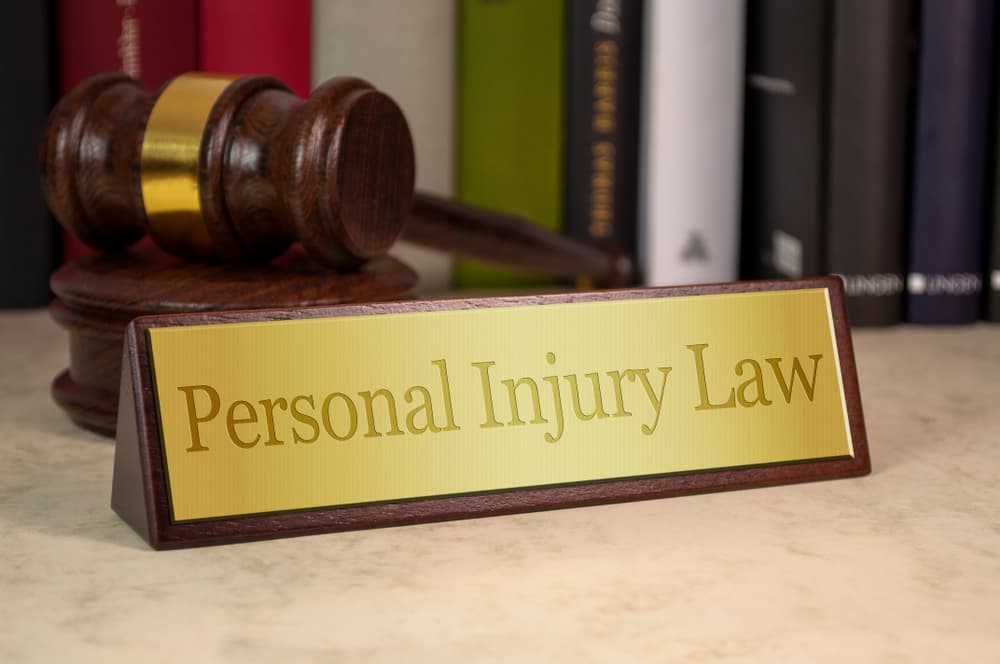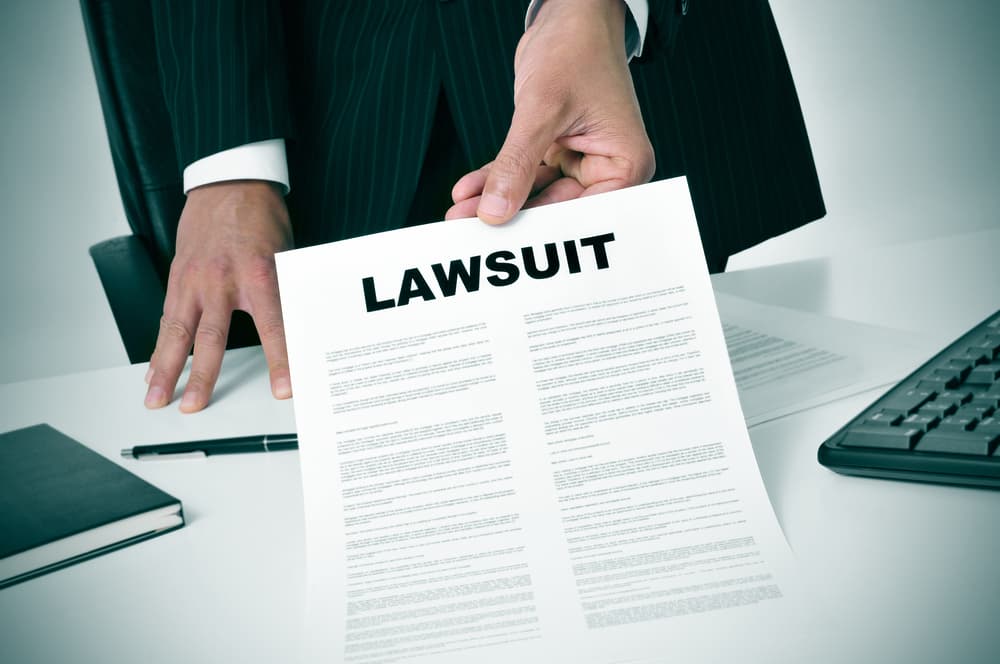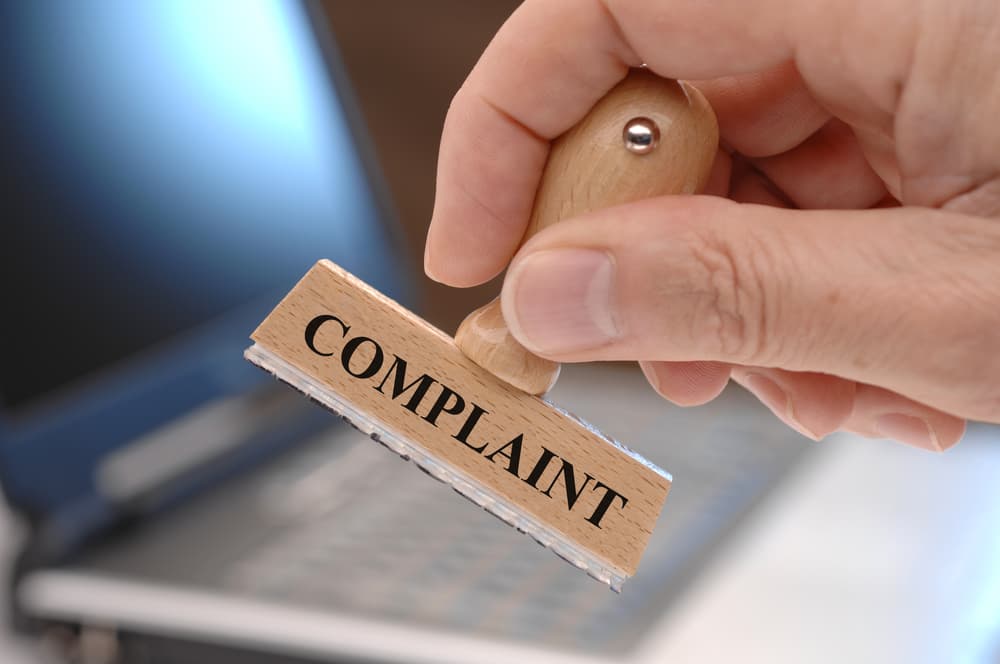A personal injury lawsuit is a legal case filed by an individual who has suffered an injury or harm due to the negligence or wrongdoing of another person, company, or entity.
If you find yourself in such a situation, a lawyer can explain the basic process of a personal injury lawsuit so that you can make informed decisions about your situation.
Personal injury lawsuits rarely result in trials, but they sometimes do. Thus, you must know how the litigation process works to understand what to expect. You should prepare for a lengthy process with more than its share of ups and downs.
The first step in the litigation process is hiring an experienced attorney to handle your case. Choosing an attorney specializing in personal injury law is vital, as they will have the necessary experience to handle your case effectively.
Your lawyer will perform crucial introductory tasks in your case, including investigating what happened and gathering evidence that can prove liability. Your lawyer will also estimate your damages so you know how much to seek in financial compensation.
Hiring a personal injury attorney does not cost you any money upfront, so hire an attorney as soon as possible after you have suffered an injury.
Schedule A Consultation Today!
You Have Options for Obtaining Financial Compensation for Your Injuries

Your lawyer will explain your legal options, so you understand whether you are eligible for financial compensation and how much you can get. Then, you will consider what to do going forward.
Once you and your lawyer examine your options, you will learn that you have two ways to obtain financial compensation for your injuries. Either will involve dealing with the insurance company, assuming the responsible party has an insurance policy.
Some companies will self-insure, meaning you will deal with the company and its lawyers.
You Can File a Claim Against the Responsible Party’s Insurance Policy
The first option for seeking financial compensation is to file a claim directly with the responsible party’s insurance company. People often do this for motor vehicle accident cases. The responsible driver will have an insurance policy that pays for the harm they caused up to the policy limit.
You can go through the insurance company, presenting evidence that its policyholder was to blame and proof of your damages.
Insurance companies will review your claim and then respond in one of two ways:
- They can deny your claim entirely if they believe that you did not present sufficient evidence of liability or that you were at fault for what happened yourself.
- They may accept liability and make you a settlement offer. The initial offer is rarely enough even to come close to compensating you for your injuries. You will have to continue negotiating before you can reach any settlement agreement.
You May Have No Choice But to File a Lawsuit

If the insurance company denies your claim or insists on making wrongful allegations about your conduct, you will have no choice but to file a lawsuit. You may also have to take your case to court if the insurance company is not even close to offering you enough compensation.
You can file a lawsuit at any time during the claims process, and you do not need to continue dealing with the insurance company informally. Filing a lawsuit will change the venue and bring the matter under the jury’s control.
Even if you take your case to court, you must still deal with the insurance companies. They will defend their policyholder in any legal action and will still be responsible for negotiating any settlement and paying for the damages. Insurance companies will provide the attorney who defends their policyholder in court.
Sometimes, the court may find the policyholder personally liable in a case that the insurance company could have settled without litigation. In that case, the policyholder may file a bad faith lawsuit against their insurance company.
How the Lawsuit Process Begins
You can also begin the legal process by filing a lawsuit against the responsible party, bypassing the claims process entirely. Some accident victims may start by trying to settle their case informally before reaching this point.
Others may immediately opt for a lawsuit because they want to avoid negotiating when they doubt they will get a fair result. They may believe it takes the pressure of a potential lawsuit to force the insurance company’s hand in a settlement negotiation.
Before you file your lawsuit in court, your attorney will take the time to perform a complete investigation of the facts of your case. They will need enough evidence and proof for your legal complaint to pass the initial scrutiny it will receive in court.
What Happens After You File a Complaint

The lawsuit will begin when your attorney files the complaint in court and serves it on the defendant. At that point, the defendant will have 30 days to file their answer to the complaint and can seek an extension to allow additional time to file their reply.
After the defendant files the answer, they may file a motion to dismiss your case with the court. This situation can happen if they do not believe your lawsuit states a valid claim or if you have a procedural defect, such as missing the statute of limitations.
The discovery process is the most essential part of your case. At trial, your lawyer presents evidence to the court that they have gathered along the way, either from their investigation or discovery. The discovery process takes many months and, in some cases, up to a year.
In discovery, you and the other party have the legal right to request evidence and factual information.
Numerous forms of discovery include:
- Interrogatories - These are questions about the case that the defendant must answer. The responses given to you can provide information about facts and witnesses, which can help with depositions.
- Requests for Admissions - Your lawyer will ask the other party questions under oath that they will admit or deny.
- Requests for Production of Documents - You can request documents and other written evidence from the other party. Many times, you are seeking texts and emails. Depending on your case type, you can be dealing with a large number of documents.
- Depositions - Your attorney can question the other party’s potential witnesses or those who may possess relevant information under oath for up to seven hours. The other party also has the right to question you and your witnesses. If the other party’s witnesses perform poorly at depositions, they may settle your case on more advantageous terms.
What Happens After Discovery Is Completed?
There will likely be some time between the close of discovery and the beginning of the trial. Your lawyer will prepare for trial based on the case you have built throughout the process.
At the same time, both parties may ask the judge to rule on the case based on the evidence. When neither party disputes material facts, the judge can grant summary judgment to either party as a matter of law before the trial. Once the judge rules on summary judgment motions, the two parties may become more motivated to settle the case.
Trial Only Happens if You Cannot Settle Your Case
If you and the other party cannot reach a settlement agreement, your case will head to a trial. Most personal injury plaintiffs will opt for a trial in front of a jury. Here, average citizens will listen to the evidence that each party presents.
After your case, the jury will weigh the evidence and determine whether the defendant is liable for your damage. The jury members will also determine how much money you will receive once they review the scope and extent of your injuries.
Both You and the Insurance Company Have a Motivation to Settle the Case

Even if you file a lawsuit in court, it does not eliminate the possibility of a settlement agreement. In fact, a lawsuit may push the two sides closer to an agreement that was previously out of reach.
Neither you nor the insurance company want to face a jury. You may risk getting nothing for your injuries if you cannot prove that the defendant was negligent.
Insurance companies certainly have a large amount to lose. A jury consists of humans with emotions and reactions.
If it sees a sympathetic plaintiff and a highly culpable defendant, the jury may throw the book at the defendant. It can even order the defendant to pay punitive damages. Then, insurance companies will need to spend more money and run the risk of the defendant filing a bad-faith lawsuit against them.
You and the insurance company want to minimize your risk, so you may consider settling the case before trial. The insurance company may make progressively better settlement offers the closer you get to trial.
Again, your case may never see the inside of a courtroom, because only about 5 percent of personal injury cases will ever go to trial. A few cases get dismissed entirely, while most will settle.
Trial Is Sometimes an Unavoidable Outcome of Your Case
Nonetheless, sometimes you may have no choice but to go to trial. The insurance company may be denying your claim entirely, or it can be trying to blame you for part of the accident (which has the effect of reducing your compensation).
Insurance companies may have a completely different view of what you deserve, and their settlement offers may not approach what you deserve. Then, you have the legal right for the jury to decide your case, taking away any control the insurance company thought it had.
Hire a Lawyer Right After the Accident
You need to hire an experienced personal injury lawyer at the outset of the litigation process. Although you may not need to file a lawsuit because you can settle your case through an insurance claim, filing a lawsuit can increase your chances of reaching a settlement agreement.
Your attorney will work to build a case so you can file a lawsuit that allows you to make it to the latter stages of the litigation process. They will need to investigate your case immediately after your injury so you do not lose key evidence to prove your contentions.
Your lawyer will collect medical records, police reports, witness statements, and other relevant documentation. The evidence will be crucial in proving negligence and establishing liability on the part of the responsible party.
You Do Not Have to Pay for a Lawyer Out of Pocket
Money never stands between you and the legal help you need.
Personal injury lawyers work on a contingency fee basis, meaning they only get paid if they successfully obtain a settlement or judgment on your behalf. In other words, they take on the financial risk of pursuing your case. If they cannot secure compensation for you, you do not owe them anything.
This arrangement allows individuals who may not have the financial means to afford an attorney and access legal representation. It also vests your lawyer in getting you the maximum compensation possible, as they typically receive a percentage of the amount recovered.
By working with a personal injury lawyer on a contingency fee basis, you can focus on your recovery and let the legal professionals handle the complexities of your case. You can have peace of mind knowing that you will not have to pay out of pocket for legal fees.
If an accident injured you, don’t let concerns about the cost of legal representation hold you back from pursuing a personal injury claim. Contact a personal injury lawyer to discuss your case and learn more about how they can help you obtain the compensation you deserve.
